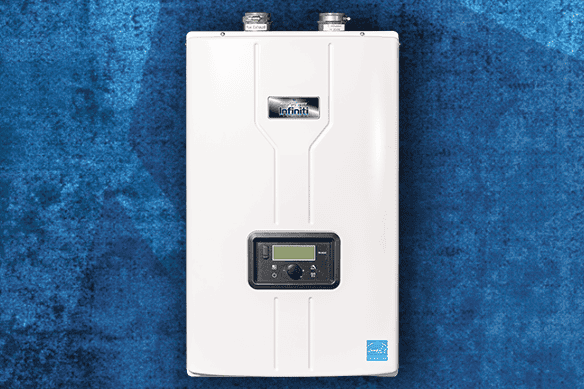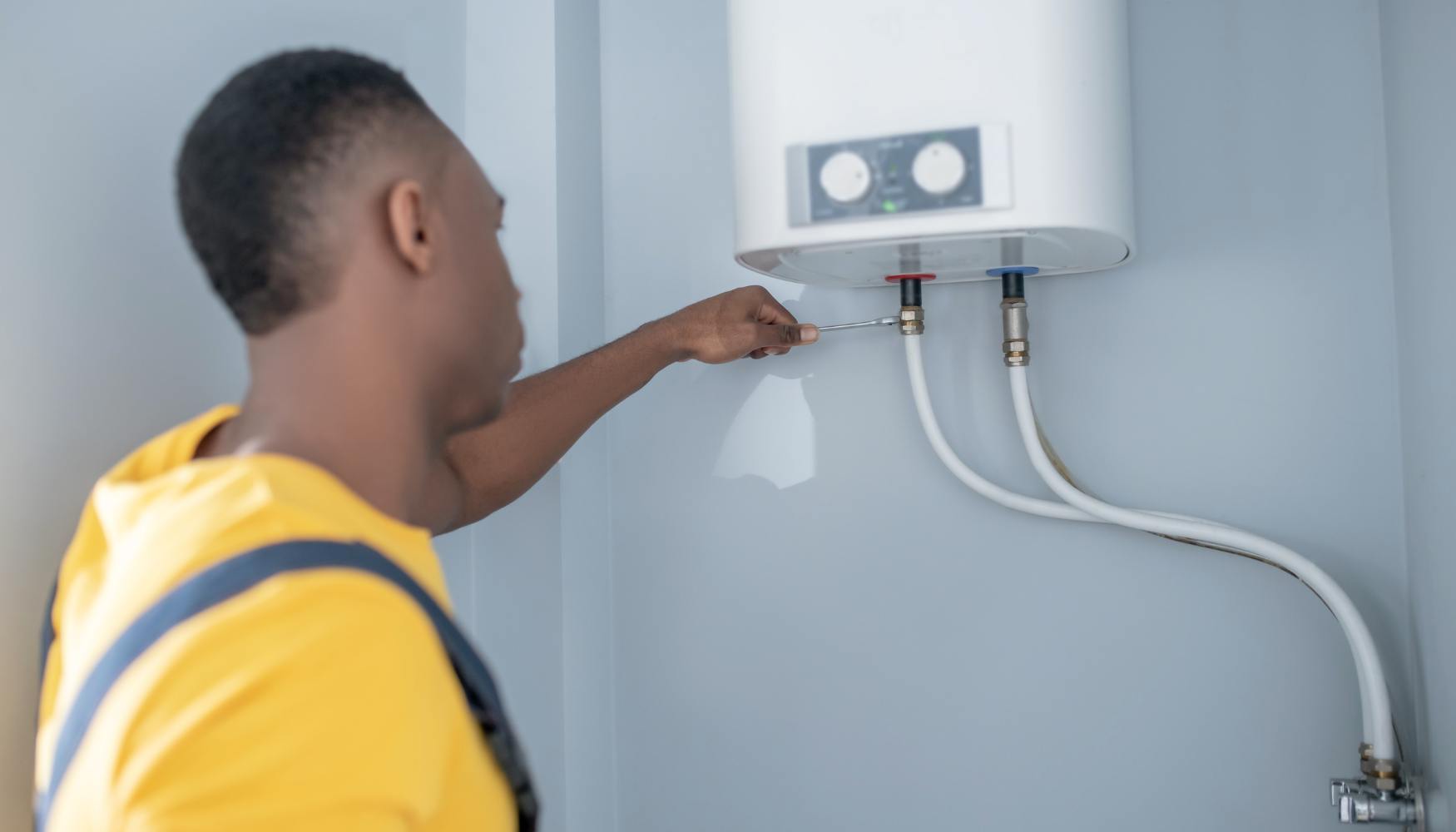Essential Drivers Why Tankless Water Heaters Are Beneficial
Essential Drivers Why Tankless Water Heaters Are Beneficial
Blog Article
Just how do you feel in regards to Pros and Cons of Tankless Water Heater?

In a world where ease and efficiency reign supreme, it's no surprise that house owners are frequently on the lookout for smarter methods to manage their home's power usage and convenience. One technology that has actually steadily gained appeal is the tankless water heater. But just what makes these systems stand out from the conventional tank-based versions the majority of us grew up with? Allow's dive in and explore the advantages of tankless hot water heater, helping you determine if it's time to make the button in your house.
Intro
Picture this: you enter the shower after a lengthy day, expecting a relaxing cascade of warm water, just to be welcomed by icy droplets since the last individual used it all up. Noise acquainted? Conventional hot water heater store a fixed quantity of warm water, implying you're at the mercy of that storage tank's supply. Tankless systems, on the other hand, warmth water as needed. No more running out mid-shower, say goodbye to fumbling with timetables simply to ensure hot water is available.
Recognizing Tankless Hot Water Heater
What Are Tankless Hot Water Heater?
Tankless hot water heater, occasionally called on-demand or instantaneous hot water heater, give warm water just as it's needed. Instead of saving gallons of pre-heated water, these systems kick right into activity the moment you switch on the faucet. Water goes through a heat exchanger, warming up in real-time, meaning you get an uninterrupted circulation of hot water without the requirement for a large container sitting lazily by.
How Do They Vary from Conventional Equipments?
Conventional heating systems hold a reservoir of warm water, using energy to maintain that tank at a constant temperature level. Tankless systems remove the standing supply, reducing thrown away power and the bulky footprint of a huge cylinder. Essentially, you're updating from a "accumulation" frame of mind to a "made-to-order" technique.
Usual Types of Tankless Units
Tankless water heaters generally come in two ranges: gas and electrical. Gas versions have a tendency to supply higher circulation rates, perfect for bigger homes, while electrical versions frequently serve smaller homes and are generally less complicated to mount. Furthermore, some systems are made for point-of-use (serving one component) while others can handle the whole home's warm water needs.
Trick Benefits of Tankless Water Heaters
Power Effectiveness and Cost Financial Savings
No more heating a titan tank's worth of water and maintaining it toasty all the time. Tankless heaters lower standby energy losses, which can reduce energy bills. While the preliminary price might be higher, the lasting savings often warrant the investment.
3. Space-Saving Design
If your home is short on storage space, eliminating the bulky tank maximizes valuable area. Tankless devices are small and can often be installed on walls, stashed in corners, or mounted in limited energy storage rooms without gobbling up the entire room.
4. Longer Lifespan
A properly maintained tankless water heater can outlast its tank-based relative. Standard storage tanks might last 10-15 years, while tankless versions can keep downing along for two decades or even more, making them a strong investment with time.
1. Limitless Warm Water Supply
Ever before needed to arrange showers so every person gets their reasonable share of hot water? With tankless, that ends up being a distant memory. As long as the heating unit's circulation ability isn't gone beyond, you can take back-to-back showers without becoming a popsicle.
5. Improved Water Top Quality
Keeping water in a tank can sometimes lead to debris accumulation or a slightly "off" taste. With tankless systems, fresh water is heated right away, reducing the opportunities of sediment buildup and potentially offering cleaner-tasting water.
Considerations Before Changing
Though the benefits are engaging, it's important to take into consideration a couple of factors before completely dedicating.
Examining Your Home's Water Use Patterns
If your family concurrently uses numerous components with high hot water need, make certain the unit's circulation rate meets your needs. Recognizing your use patterns assists you pick the appropriate dimension and kind of tankless heater.
Upkeep and Care Tips
Tankless systems are relatively low upkeep, but they aren't set-it-and-forget-it appliances.
Routine Cleansing and Descaling
Tough water minerals can accumulate in the heat exchanger, impacting efficiency. Routine descaling (typically suggested each year) keeps the device running at peak performance.
Yearly Expert Assessments
A yearly checkup from a professional makes certain minor issues are captured early. They'll examine the unit's efficiency, seek leaks, and aid preserve optimum efficiency.
First Investment Expenses
Tankless heaters typically include a greater upfront price. Between the unit itself and possible installment modifications, the preliminary expense could give you sticker shock. However keep in mind to see it as a long-lasting investment.
Setup Demands
Relying on your home's framework, you might require extra electrical capacity or gas line upgrades. Guarantee you understand the setup requirements and speak with a professional to prevent shocks.
Guaranteeing Correct Air Flow
For gas versions, proper ventilation is vital to securely expel exhaust gases. Ensure venting systems are clean and correctly installed to prevent any prospective security dangers.
Contrasting Different Brands and Versions
Not all tankless hot water heater are produced equal.
Researching Reputable Suppliers
Seek trusted brands with a background of creating high quality systems. A reliable manufacturer typically offers much better customer support and longer service warranties.
Installation: Do It Yourself or Expert?
While some property owners delight in taking on tasks themselves, tankless installment may not be the very best time to break out the toolbox.
Pros and Cons of DIY Installment
A do it yourself mount can save cash, yet it includes threats. Inaccurate installment can result in inadequacy or security issues. If you come in handy and have experience, it might be practical-- but wage caution.
Reviewing Reviews and Individual Feedback
Individual evaluations and feedback from neighbors or buddies that have actually gone tankless can supply important understandings. Occasionally, real-life experiences can be extra telling than advertising pamphlets.
When to Call a Professional Plumbing Technician
For many, calling a pro guarantees every little thing's done properly. A professional plumbing professional comprehends regional codes, sizing demands, and venting criteria, reducing the risk of mishaps.
Taking full advantage of Efficiency
You've purchased a tankless unit-- currently optimize its efficiency.
Ideal Temperature Settings
The majority of people set their devices between 120-140 F. Adjusting the temperature level can boost convenience and savings. Experiment to locate a sweet area that does not squander energy.
Pairing with Low-Flow Fixtures
Intend to extend your unit's abilities? Consider setting up low-flow showerheads and taps. They lower water usage, enabling your tankless system to supply a steady stream of hot water without straining.
Environmental Effect
Tankless hot water heater straighten with greener living objectives.
Lowered Carbon Impact
By using much less power and just heating water as required, tankless systems can reduce your home's carbon impact, decreasing your environmental effect.
Preserving Natural Resources
Less power usage and less wasted hot water convert into less natural deposits being utilized, an environmental win-win.
Who Profits Most from Tankless Heating units?
The appeal of tankless heaters is that they can suit a range of houses.
Huge Families vs. Single Residents
Large families could like the countless hot water supply, while solitary owners appreciate the energy cost savings from not warming an entire tank for just a single person's morning shower.
Homeowners with Limited Area
If your home is short on square video, losing the bulky storage tank frees up space for various other fundamentals-- or maybe simply a lot more elbow room.
Eco-Conscious Consumers
Going tankless aligns with eco-friendly worths, ensuring you're not throwing away power or resources.
Future Trends in Tankless Water Heaters
The globe of home appliances is ever-evolving, and tankless hot water heater are no exemption.
Improvements in Technology
R&D is regularly improving warmth exchangers, making units much more effective and resilient. Future versions might be even quieter, much more small, and much better suited for differing climates.
Smart Home Integration
Imagine readjusting your water heater's temperature via an application or receiving upkeep informs on your phone. As smart home tech advancements, we'll see more connection and benefit.
Conclusion
Choosing a tankless hot water heater is greater than just upgrading your home's warm water system; it's buying lasting convenience, power efficiency, and a greener lifestyle. By considering your house's water use, bearing in mind installment needs, and committing to normal upkeep, you can delight in a constant stream of warm water without the baggage of a cumbersome container. As technology advances, you can look forward to even smarter, extra effective tankless solutions that not only make your life easier but additionally benefit the planet.
Six Benefits of a Tankless Hot Water Heater
Continuous hot water. Large families know what a pain it is to hop into the shower and get blasted with cold water. With a tankless hot water heater, this doesn't happen as long as you install the right size tank. Even if you don t have a large family, a tankless hot water heater allows you to use multiple appliances at once without running out of hot water. Reduced energy bill. Because tankless heaters are essentially "off" when the water tap is not on, they use less energy overall. In fact, an ENERGY STAR-qualified tankless hot water heater can use 25-40% less energy than a conventional water heater, and save the average family $100 or more annually. Longer life. Get more bang for your buck with a greater lifespan. Specifically, conventional hot water heaters last about 10-13 years compared with up to 20 years for a tankless hot water heater. Less space. Did you know that tankless hot water heaters can be hung on a wall almost anywhere in your home? Plus, at 28" tall by 20" wide and 10" deep, a tankless hot water heater takes up a lot less space than a conventional hot water heater, which is 60" tall and 24" wide. Good for the environment. In addition to reducing the amount of energy used, most propane-fired tankless water heaters are made of recycled materials. Many conventional tanks, on the other hand, go directly to the dump once they've served their purpose. High safety ratings. Conventional water heaters are "always on" and thus pose safety risks more often than do tankless heaters, which only operate when warm water is needed. https://www.rotorooter.com/blog/water-heaters/six-benefits-of-a-tankless-hot-water-heater/

As an enthusiastic reader on Pros and Cons of Tankless Water Heater, I figured sharing that article was important. Sharing is caring. You just don't know, you may just be doing someone a favor. I take joy in reading our article about Six Benefits of a Tankless Hot Water Heater.
Click Here Report this page